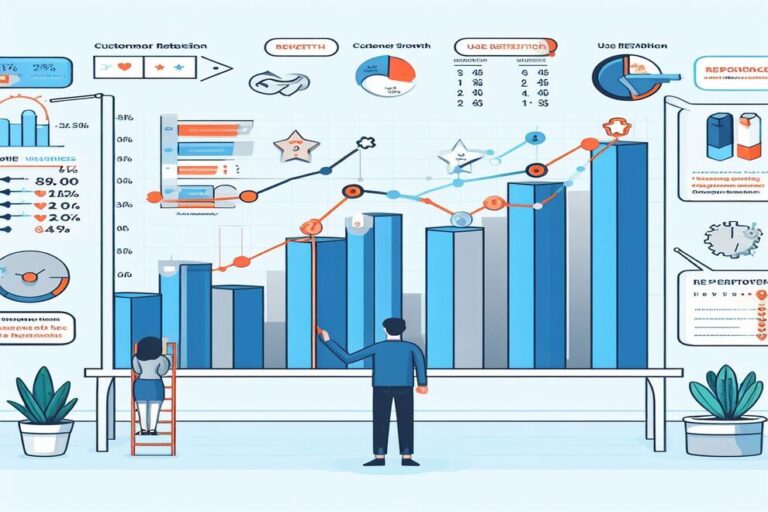Guarding the Cloud: Data Security and Compliance Analysis in SaaS Businesses

In the modern landscape of Software as a Service (SaaS), where data is the lifeblood of the digital realm, ensuring the security and compliance of that data is paramount. SaaS companies, trusted with vast amounts of sensitive information, need to uphold the highest standards of data protection and regulatory adherence. In this blog post, we will explore the intricate world of data security and compliance in SaaS businesses, shedding light on the importance, challenges, and best practices to keep your data safe.
The Significance of Data Security and Compliance in SaaS
Before we dive into the nuts and bolts of data security and compliance, let’s understand why they hold such a vital place in the SaaS industry.
The Stakes Are High
- Protecting Sensitive Data: SaaS companies often handle sensitive customer information, ranging from personal details to financial data. Data breaches can lead to significant financial and reputational damage.
- Customer Trust: Customers trust SaaS providers to safeguard their data. A security breach can shatter this trust and result in customer churn.
- Regulatory Obligations: Many industries have specific regulations regarding data handling, such as GDPR in Europe or HIPAA in healthcare. Compliance is not just good practice; it’s the law.
- Business Continuity: A data breach or security incident can disrupt business operations, impacting not only customer trust but also your company’s continuity.
Challenges in Data Security and Compliance for SaaS Businesses
SaaS companies encounter several challenges in the realm of data security and compliance:
- Evolving Threat Landscape: Cyber threats continually evolve, making it challenging to stay ahead of potential breaches.
- Data Encryption: Ensuring data is encrypted at rest and in transit can be complex, especially in multi-cloud environments.
- Global Compliance: SaaS companies must navigate a web of international data protection laws and industry-specific regulations.
- User Access Control: Managing who has access to sensitive data and under what conditions can be complex, particularly in large organizations.
- Security Awareness: Educating employees and users about security best practices is an ongoing effort.
Best Practices for Data Security and Compliance in SaaS Businesses
Now, let’s explore best practices to enhance data security and compliance in your SaaS business:
1. Data Encryption
Implement robust encryption for data at rest and in transit. Use industry-standard encryption protocols to protect sensitive information from unauthorized access.
2. Strong Authentication
Require strong authentication methods, such as two-factor authentication (2FA), for user access to your systems. This adds an extra layer of security.
3. Regular Security Audits
Conduct regular security audits and penetration testing to identify vulnerabilities. Regular assessments help you stay one step ahead of potential threats.
4. Compliance with Data Protection Regulations
Understand and comply with data protection regulations applicable to your industry and regions of operation. This may include GDPR, HIPAA, or SOC 2, among others.
5. Data Minimization
Collect and store only the data that is essential for your business processes. Minimizing data reduces the risk associated with handling sensitive information.
6. User Access Control
Implement role-based access control (RBAC) to restrict access to sensitive data. Users should only have access to the data necessary for their roles.
7. Data Backup and Recovery
Maintain regular data backups and have a robust disaster recovery plan in place. This ensures that your data can be restored in case of a security incident.
8. Employee Training
Educate your employees and users about security best practices. Security awareness training should be a continual effort.
9. Secure Development Practices
Incorporate secure coding practices into your software development process. Security should be part of the development lifecycle.
10. Vendor Risk Assessment
If you rely on third-party vendors or cloud providers, assess their security and compliance measures. Ensure they meet your standards.
11. Incident Response Plan
Develop a clear incident response plan to address security breaches. Knowing how to respond can minimize the damage and downtime associated with a security incident.
12. Data Privacy Policies
Establish clear and concise data privacy policies for your customers. Communicate how their data is used, stored, and protected.
13. Regular Updates and Patching
Stay up-to-date with security patches and updates for all software and systems. Outdated software is a common entry point for attackers.
14. Security Monitoring
Implement continuous security monitoring to detect and respond to suspicious activities promptly.
15. Security Compliance Audits
Engage with external auditors or compliance experts to conduct security compliance audits and ensure that your practices align with industry and regulatory standards.
Data Security and Compliance as a Competitive Advantage
While data security and compliance are critical for protection, they can also be leveraged as a competitive advantage:
- Customer Trust: Demonstrating a commitment to data security and compliance builds trust with customers and prospects.
- Market Differentiation: In a crowded SaaS marketplace, robust security and compliance measures can set you apart from competitors.
- Data Monetization: Compliant data handling can enable your company to monetize data in a way that respects privacy and security.
Conclusion
In the digital age, data is the currency of success, but with great power comes great responsibility. Data security and compliance in SaaS are not just checkboxes; they are ongoing commitments to safeguarding the trust and privacy of your customers. By implementing best practices, staying ahead of evolving threats, and seeing data protection as a competitive advantage, you can ensure that your SaaS business thrives in the face of modern challenges. So, embrace the challenge of data security and compliance, and fortify your position in the SaaS industry as a trusted and responsible custodian of sensitive information.





